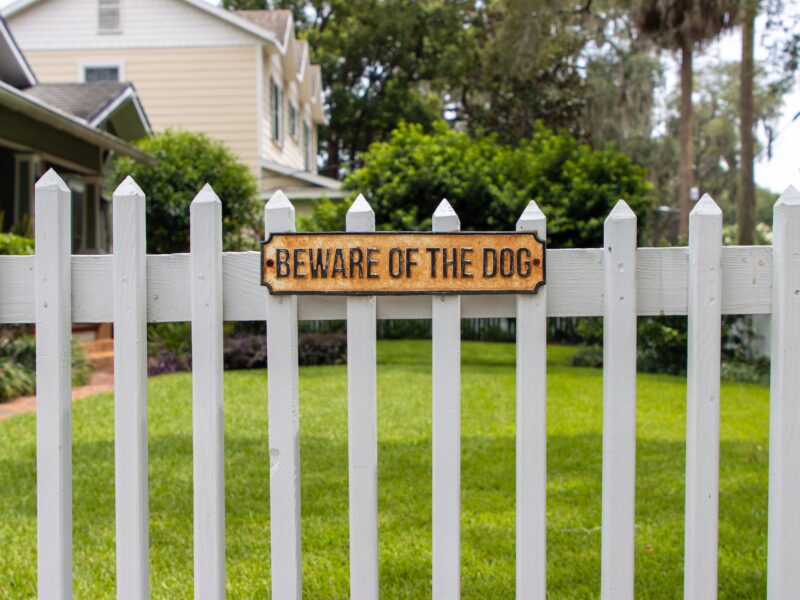If you or a loved one have been bitten by a dog, you many wonder what are California’s dog bite laws? This article explores California’s dog bite laws and how they affect dog bite victims.
California has specific laws in place regarding dog bites that hold dog owners liable for injuries caused by their pets. Understanding these laws is crucial when dealing with a dog bite injury in the state. Here are the key aspects of California’s dog bite laws:
Strict Liability For Dog Bites
California follows the legal doctrine of strict liability when it comes to dog bites. Under strict liability, dog owners are held responsible for injuries caused by their dogs, regardless of the dog’s past behavior or the owner’s knowledge of its viciousness. This means that the owner can be held liable for damages even if the dog has never bitten anyone before or showed any prior signs of aggression.
No “One Bite” Rule
California does not adhere to the traditional “one bite” rule. In some states, the owner is only held liable if they were aware of their dog’s dangerous tendencies because the dog had bitten someone previously. However, California’s strict liability law applies regardless of whether the dog had a prior history of aggression or bites.
California’s Dog Bite Statute
California Civil Code Section 3342 specifically addresses dog bites. It states that the owner of a dog is liable for injuries caused by their dog biting another person, provided the person who was bitten was lawfully present in a public place or lawfully on private property, including the dog owner’s property. This law extends liability to dog bites that occur not only in public areas but also in private settings where the victim has a legal right to be present.
Comparative Negligence
California follows the doctrine of comparative negligence in personal injury cases. This means that if the victim’s actions contributed to the dog bite incident, their compensation may be reduced proportionally by their degree of fault. For example, if the victim provoked the dog or trespassed on the owner’s property, their financial compensation may be reduced accordingly.
Exceptions
There are certain exceptions to California’s strict liability law for dog bites. These exceptions include instances where the victim was a trespasser on private property or engaged in certain criminal activities at the time of the incident. In such cases, the owner may not be held strictly liable, although they may still be liable for damages under other legal theories, such as negligence.
It’s important to note that local ordinances and regulations may also affect dog bite laws in specific cities or counties within California.
It is Best to Seek Legal Representation in Dog Bite Cases
It is best to have our skilled personal injury attorneys by your side to obtain the best possible outcome for your case. Consulting with our experienced dog bite lawyers will ensure you have a comprehensive understanding of the applicable laws and how they relate to your specific situation.
We offer California dog bite victims a free consultation and work on a contingency fee basis. There is no fee unless we recover compensation for you.
We understand that attorney’s fees are a leading cause of victims not seeking the legal representation they desperately need. That’s why we work on our client’s cases on a contingency fee arrangement. Clients pay nothing upfront.
Our legal fees are calculated based on a percentage of the compensation you recover. That means that if there is no successful recovery of damages, there is no fee, and you owe us nothing.
We want everyone who has been seriously injured by a dog bite or animal attack to be able to access high-quality legal counsel for their personal injury case, and we have helped countless accident victims recover compensation for their injuries.
Contact us today for a free consultation and case evaluation.
Read next: How Long After A Dog Bite Can You Claim Injury?
The general information provided on this website should not be considered legal advice and does not constitute legal advice. For legal advice, you should consult directly with an attorney. If you contact us by telephone, email, letter, or by contact form submission through this website, please note that such communication does not create or constitute an attorney-client relationship. We cannot act as your attorney until we are hired as your attorney by a formal written agreement.


 Can I Sue for a Hit and Run in California?
Can I Sue for a Hit and Run in California?